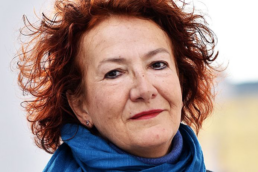“Many years ago, a debate started at the department about whether the term project really tallies with our understanding of collaboration with our partners in the global South. And we agree that the term leads to misunderstandings and oversimplification.
Project sounds as if you come together at certain points, complete something and then part ways again. That’s not how we work at all, though. We support emancipatory processes that are open ended. And we enter into relationships with our cooperation partners that are supposed to last longer than a single measure. We have been working with the landless movement in Brazil for 16 years now. Formally, this happens through projects and follow-up projects. But it all revolves around political solidarity that endures. Another example: In the wake of the Syrian war, it was also a matter of getting people out of the country. That’s what we did. But that is not a “project”. Of course, you can channel everything into the form of a project – formulating measures, calculating budgets, setting funding guidelines etc.. We do all that time and again. But much of what defines our collaboration, what we share and are trying to build together, has nothing to do with money. For me, that is what is crucial: We and our partner share much more than projects. The emphasis being on the “much more”. Furthermore, the term project suggests a traditional donor-beneficiary relationship. This does not tally with our vision of cooperation or that of our partners. Just as they do not see themselves as “implementers of projects”, but rather as political actors, the same goes for us: medico also sees itself as a politically active organization, not primarily as some authority approving the release of funds.”
The Project Department of medico international has changed its name to the “Department for Transnational Cooperation”. Why? Karin Urschel, the outgoing head of department, explains this in a remarkable interview
Read the interview here: medico website

